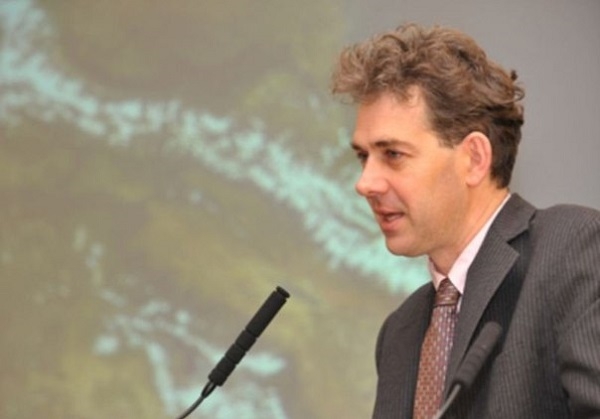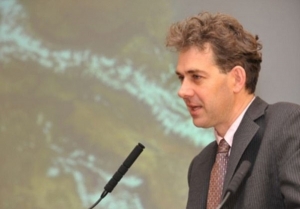Thomas De Waal: Caucasus Conflicts Resemble Volcanoes
Non-resident Senior Associate at Carnegie Europe, Thomas De Waal, published an article concerning Georgia’s conflicts and their place in regional affairs.
De Waal compares the conflicts in the Caucasus to volcanoes.
“They erupt in short and devastating episodes of violence, then for a long period everything is quiet and nothing moves. There are protracted negotiations, generally about very small issues, and political declarations, but the essence of the problem remains unchanged - until a new eruption occurs and changes the landscape,” reads the article.
He says, the Abkhazia and South Ossetia conflicts have been in a quiet and depressed condition since the disastrous 2008 five-day war and Russia's decision to recognize the two territories as independent states.
“The parties have met in Geneva 33 times, but the main achievement of those talks has been, in a sense, the talks themselves, the fact that the conflicting parties have managed to keep on negotiating with one another, albeit over very minor issues,” writes De Waal.
According to the expert, much has changed in the region itself and internationally.
“The paradox for Abkhazia and South Ossetia is that Russian recognition has only made these two places more isolated internationally and more dependent on Russia. Being hitched to the Russian cart has had increasingly negative consequences for the Abkhaz and South Ossetians. Inside Russia, they are treated with contempt by many Russians as persons of Caucasian nationality. The decline of the Russian economy means that subsidies from Moscow have decreased.” say De Waal.
“Since the Ukraine crisis broke out in 2014, this situation has become even worse. The new international environment has had negative consequences for both Abkhazia and South Ossetia. They have been put under pressure to support Moscow's annexation of Crimea and military intervention in eastern Ukraine, something the South Ossetians have agreed to with enthusiasm, but the Abkhaz have been noticeably much less willing to do,” the article reads.
To view the full text, click here.












